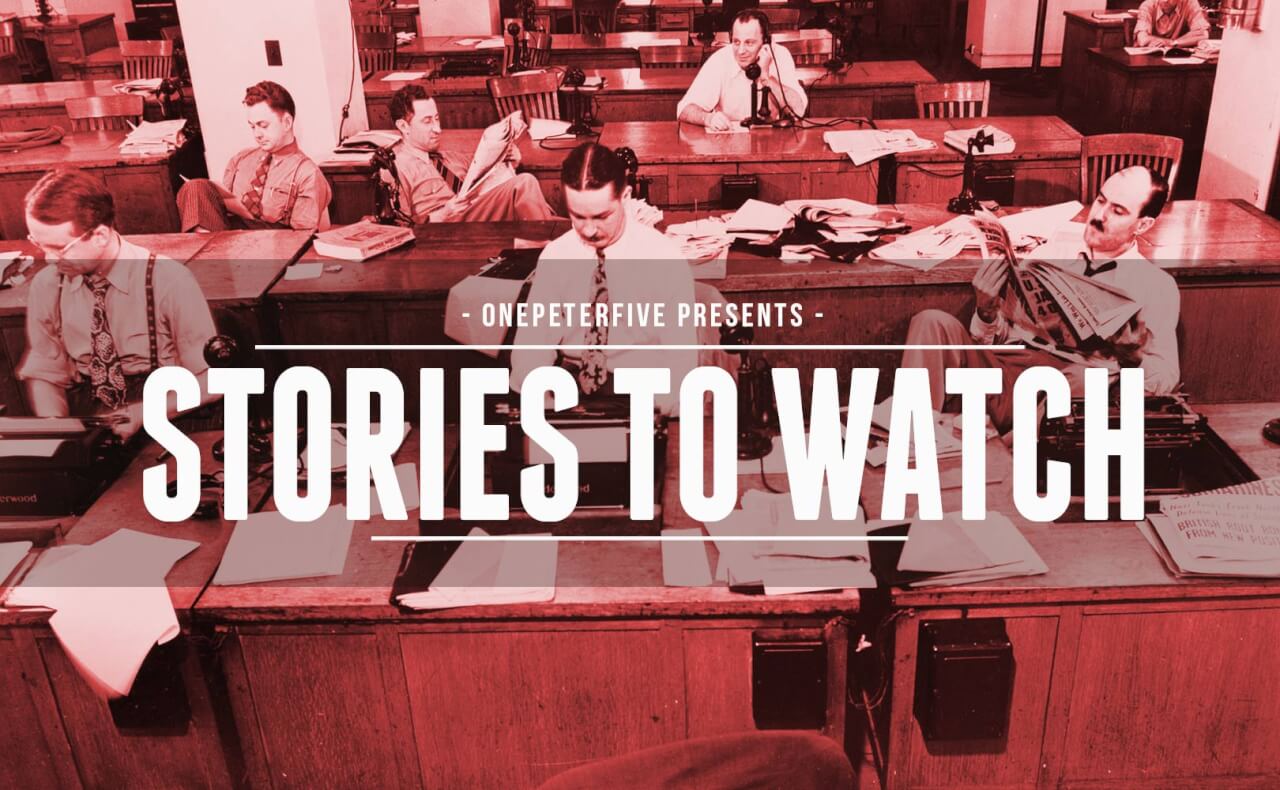Amidst more reports of the Holy Father’s poor health, it has now been confirmed by multiple sources that the Pope intends to remove Cardinal Burke’s salary and apartment in Rome. It has not been confirmed, however, if Cardinal Burke would also be removed from the College of Cardinals.
Neither Cardinal Burke nor the Vatican have made any public statements since this news was broken earlier this week and now confirmed. On Tuesday we published the analysis of Dr. Francés of these more aggressive moves from the Pontiff, arguing that the removal of bishops requires the Pope to have a grave reason behind it. Otherwise it is merely an arbitrary act justified solely by the Pope’s will.
In other words, “might makes right.”
In the reports of this potential move against Burke however, we are being given certain justifications from the Pontiff. What are they?
According to Austen Ivereigh,
I met with Pope Francis on the afternoon of November 27th. It was a short meeting because of his lung inflammation, which meant it took him some effort to speak. (The following evening his trip to Dubai was cancelled because it had not improved enough.) In the course of our conversation, Francis told me he had decided to remove Cardinal Burke’s cardinal privileges — his apartment and salary — because he had been using those privileges against the Church. He told me that while the decision wasn’t a secret, he didn’t intend a public announcement but earlier that day (Monday) it had been leaked.
So the justification for this move is that Burke is doing something “against the Church.” What exactly?
First, Ivereigh asserts that the Pope denied using the term “enemy” to describe Burke, as was first reported:
On Tuesday evening I had a note back from the Pope. “I never used the word ‘enemy’ nor the pronoun ‘my.’ I simply announced the fact at the meeting of the dicastery heads, without giving specific explanations.”
According to two sources (here and here) present at the Vatican meeting where the Pope allegedly called Burke his “enemy,” the Pontiff said that Burke’s actions were causing “disunity” and that is the reason for his punishment.
So there is no specific charge being given here other than these vague slogans that we’ve heard before. This hearkens back to that seminal essay by Dietrich von Hildebrand in his book The Charitable Anathema in which he adroitly summarises the core issue at stake in the crisis, decades before Pope Francis: “the valuing of unity over truth plays a central role in the crisis of the Church.”[1]
When the matter of truth is at stake, he says, the Church even breaks her unity for the sake of truth, by using the charitable anathema. Truth divides from falsehood, and the only unity possible is a unity in truth. Cardinal Burke has consistently sought to defend the truths of the Faith, and that is the justification for his actions.
Until the Vatican regime can give reasons beyond the vague slogans of a dictator, these strong moves against good bishops will only make them into confessors of the faith.
If Burke does lose his income, the orthodox faithful will rally around him and his platform will only get bigger than it already is.
This situation will continue until the only proven solution is pursued:
PRACTICAL STEPS FOR RESOLVING THIS CRISIS
- Every bishop has jurisdiction over the communion of his diocese
- Every bishop has the power and authority to anathematize heresy. If he judges it necessary, he can also do this from a diocesan synod (synodality!).
- Every bishop has the ability to identify and name the chief errors of our time. The Declaration of Truths, signed in 2019 by prominent bishops like Cardinal Burke and Bishop Schneider, has already laid out the most common errors and opposed them.
- Every bishop should issue the charitable anathema for all Catholics in his diocese. Taking the aforementioned Declaration of Truths, a bishop can simply issue a decree such as this:
If anyone does not confess the truths contained in this declaration according to the sense and understanding that the Church has always taught and teaches, let him be anathema.
- If this seems too extreme, why not simply do the same with the Professio Fidei that is already on the books? or the Oath Against Modernism that is an infallible oath promulgated for decades since Pius X?
- Every case of heresy must be judged properly with truth and charity. This can and should be done locally, not only by the Dicastery for the Doctrine of the Faith at the Vatican.
[1] Dietrich von Hildebrand, The Charitable Anathema (Harrison, NY: Roman Catholic Books, 1993), 1.


